“Over the past century, the Federal Reserve’s local connections have proven to be valuable in carrying out its responsibilities. Whether responding to a crisis, delivering financial services, or supervising banks, the deep understanding of regional interests has facilitated effective operational performance.”
Esther George, president and CEO, Federal Reserve Bank of Kansas City, External LinkSpeech to the Exchequer Club, Washington, D.C., May 21, 2014
Numbers are an important part of any story about our economy, but they may not always tell the whole story.
For example, the monthly jobs report tells you who is and isn’t rejoining the workforce, but not what it’s like to be a worker struggling to find child care, broadband or housing they can afford. For that, and for a look at regional trends, the Federal Reserve Bank of Kansas City listens to people with deep knowledge of their communities. The Community Development Advisory Council (CDAC), entering its 21st year, is one of several ways the KC Fed gathers insights.
CDAC members represent the seven states in the Federal Reserve’s Tenth District and come from diverse backgrounds. The group meets formally twice a year and members provide insights year-round. In January, the Kansas City Fed added seven new members to the council. We talked with each new member to learn who they represent, the issues that are top of mind, and why they decided to contribute their time to the CDAC.
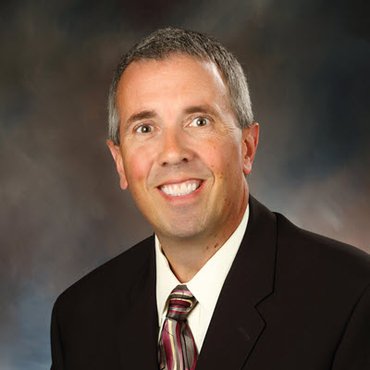
Scott Hoversland, Executive Director
Wyoming Community Development Authority
Casper, Wyoming
The Wyoming Community Development Authority (WCDA) raises capital to finance affordable housing and administers several major federal affordable rental housing programs.
Hoversland said Wyoming is trying to diversify its economy, but, while it has a good business environment, the lack of affordable housing stock is hurting recruitment. “It’s a statewide issue, in every corner of the state,” he said. The pandemic heightened awareness about the critical need. “It’s terrible but it’s given us opportunities to improve things going into the future.”
Jackson Hole, a resort community with little private land, is particularly hard hit. People think it’s all wealthy people, Hoversland said, “but it’s the service industry workers, firefighters, police officers, teachers, and it’s very difficult for them to afford to live there.” Many live across the Teton Pass in Idaho or in nearby communities. “Early in the morning if you look up at the pass from Jackson Hole,” Hoversland said, “there’s just one solid string of lights of people driving over the pass to come into work, and at night the red taillights of people going home. It’s 30 to 50 miles one way. In the winter, that’s very dangerous.”
Hoversland said it was important to him to represent Wyoming because it’s a unique state, the smallest in population with an economy that often lags a year or two behind the rest of the country.
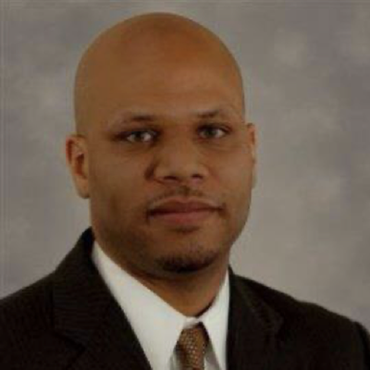
Dewey Jackson, President
Denver Area Labor Federation, AFL-CIO
Denver, Colorado
The Denver Area Labor Federation (DALF) is one of nearly 500 state and local labor councils of the AFL-CIO and works with local and national labor and community organizations around policies that support worker rights. DALF has 114 affiliates, among them plumbers, school teachers, flight attendants, government workers and hospitality workers. Jackson is a licensed journeyman plumber (2011-current) and apprenticeship instructor (2016-current) for Denver Plumbers Local #3.
Jackson noted that hospitality and service workers have been marginalized historically, with most of those jobs filled by immigrants and women. Their affiliates have been active lately, holding strikes and other actions, he said. “What outsiders get wrong is they think these people are lazy and don’t want to work and that these are menial jobs,” Jackson said. “These jobs are the lifeline for them to earn a living and care for their families.”
Jackson said that DALF holds elected officials accountable, pushing for the greater good of working-class people. “It’s being able to change that narrative because historically it’s been chipped away by big corporate profits. We have to make sure that the lifeblood of the economy is starting to get a piece of the pie again.”
Jackson said he wanted to join the CDAC because “leadership is service. It is helping others. That’s something that burns inside of me, to be able to help.”
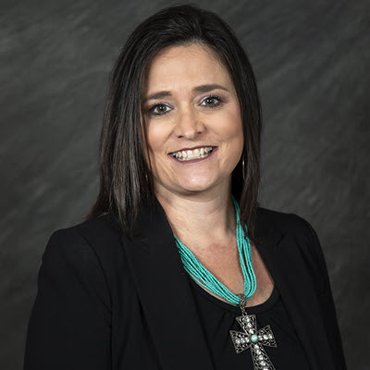
Cindy Logsdon, Executive Director/CEO
Citizen Potawatomi Community Development Corporation
Shawnee, Oklahoma
The corporation, a Native Community Development Financial Institution, finances and promotes the entrepreneurial growth, economic opportunity and financial well-being of the Citizen Potawatomi Nation Tribal Community nationwide, and all Native Americans in the state of Oklahoma.
“Traditionally,” Logsdon said, “Native Americans come from a spot of distrust and that probably flows back to the federal government and circumstances of Native Americans losing their homelands.” One result of that is a lack of banking relationships. “If you’re unbanked and don’t have that relationship, you’re underserved because you’re not going to have sources available to you,” she said.
The Citizen Potawatomie Nation was removed from its homeland twice, Logsdon said, and currently has about 32,000 members. What outsiders often miss is that “it is a very entrepreneurial tribe. We come with that spirit. We’re risk takers. We look for opportunity for self-employment. We are striving to brighten norms, despite the challenges that many Native people may face.”
Logsdon said she chose to serve on the CDAC because “I like to stay plugged in, so the Native voice is heard. Being at the table when decisions are being made, it’s a way I can give back to my community.” She views the Fed as a strategic partner, expanding her reach at the state and regional level.
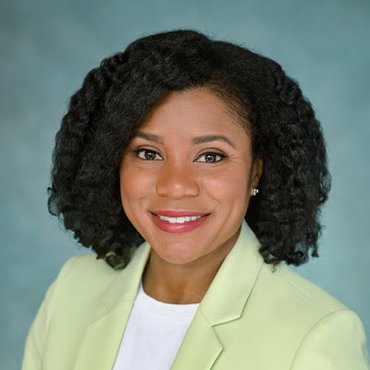
Angela McGraw, Director
Do Space
Omaha, Nebraska
Do Space is a nonprofit technology library offering the Omaha community free access to innovative technology and educational programs. “The group I’ll be representing on the CDAC are the people who are affected by the digital divide,” McGraw said. “We are talking about senior citizens on fixed incomes, lower-income individuals and also minorities.”
In 2020, she said, the pandemic highlighted how important it is for everyone to have access to technology and know how to use it. What do outsiders still get wrong about the digital divide? “I think outsiders don't fully understand the impact of the digital divide. Lack of technology can exclude low-income residents from remote work, online learning and tele-health services,” McGraw said. “In order to participate in our society at a high level, individuals need more than just a cell phone. They need access to computers, internet services, software, and the education that goes along with understanding how to utilize those things.”
McGraw said that it was important to her to serve on the CDAC because “digital equity is a passion of mine. I think it’s important to lend my voice and my time and my energy to a cause that’s greater than me and a cause that can benefit a lot of Omahans.”
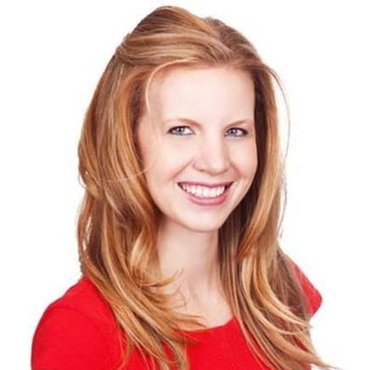
Amanda Peters, Senior Vice President
Vectra Bank Colorado
Denver, Colorado
As part of the Zions Bancorporation family, Vectra Bank Colorado serves small, medium-sized and corporate customers with 35 locations across Colorado. Peters manages the bank’s community development department. As a volunteer, she is president of the Habitat for Humanity Colorado Board of Directors.
Peters brings her concerns about housing to the CDAC. “Hard-working average families in the vast majority of communities in our state cannot afford housing,” Peters said. “This is putting pressure on businesses and social services to stay adequately staffed as some families choose to relocate to more affordable markets.” She noted that External Linkthe Marshall Fire in Boulder County in December 2021 displaced upwards of 1,000 families, many of which are now struggling to find affordable housing in an already strained housing market.
As a funder, Peters said, “it’s extremely important for me to listen.” Serving on the CDAC provides an opportunity to do that, as well as share insights with other members. “I need to listen and ask questions about their constituents and communities they represent and what trends or patterns they’re noticing and what new is happening,” she said. “Collective knowledge is powerful. Some creative strategies and solutions can come out of the council.”
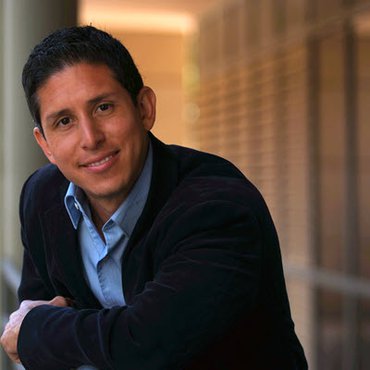
Alan Ramirez, Director of Lending
Colorado Enterprise Fund
Denver, Colorado
Ramirez is the director of lending for the Colorado Enterprise Fund (CEF), a statewide community development financial institution, based in Denver. “The community I represent is underserved small business owners, who are not able to walk into their Main Street bank and qualify for a loan,” Ramirez said. “This can be attributed to various factors such as the loan being too small for the bank to consider or standard items such as FICO, cash flow or liquidity requirements. We also provide technical assistance, which, combined with capital, can help the business truly grow.”
From the start of the pandemic in March 2020 through September 2021, CEF closed more than $102 million in small business loans and grants available through pandemic relief programs to more than 5,214 businesses, with an average amount of $19,000.
CEF clients include many immigrants and refugees, attempting to start a business in a new country and new language. “Character is a big part of what we qualify,” Ramirez said. “It’s as important as a business plan and as important as projections.” Clients have a strong work ethic, and they receive technical support, he said. Ninety-eight percent pay back their loans.
“So many of our small businesses struggle day to day and their successes are measured in so many different ways,” Ramirez said. On the CDAC, “I hope to be a voice for small business owners to talk about the challenges, to talk about the opportunities that can help them.”
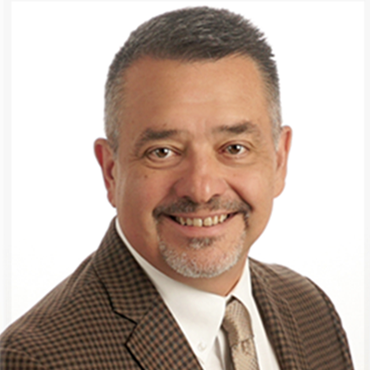
Pete Upton, Executive Director
Native360 Loan Fund
Grand Island, Nebraska
Native360 Loan Fund (N360) is a certified Native CDFI that focuses on entrepreneurship, consumer lending, small business lending, and home improvement/home mortgages. It serves Tribal citizens in Nebraska, western Iowa, southeast South Dakota and northeast Kansas.
“The poverty and unemployment rates in our target markets are sometimes more than three times the state averages,” Upton said. The primary thing outsiders don’t understand is that so many Native Americans are currently unbanked, sometimes because no bank serves that community. Yet most Native Americans want to improve their financial management skills, and he sees improvements in the ability of Native Americans to acquire assets and build wealth. “The number one request we get is for financial management training,” he said.
Upton is an enrolled member of the Ponca Tribe of Nebraska. About a week before he met with a group of 10 potential borrowers in 2018, he found a letter dated Sept. 2, 1926, from the Indian Agency in Wagner, South Dakota. It included names of 64 Santee and Ponca children that left that day for the Indian School at Genoa, Nebraska. “My mother’s name was on that list,” Upton said. As he presented to the borrowers, he realized that those at the meeting were related to some of his mother’s classmates from almost a century ago. “That moment transformed my purpose in life,” Upton said, “so when opportunities arrive, I have to take them. We have to have Native voices at the table. I would not be serving my community if I didn’t rise to the occasion.”
The CDAC includes nine returning members
The CDAC also includes nine current and reappointed council members:
- Aubrey Abbott Patterson, president and CEO, Hutchinson Community Foundation, in Hutchinson, Kansas
- Niki Donawa, chief community relations officer at Truman Medical Centers in Kansas City, Missouri
- Raúl Font, president, Latino Community Development Agency in Oklahoma City, Oklahoma
- Don Greenwell, president of The Builders' Association and executive director, Kansas City Chapter-Associated General Contractors of America (AGC) in Kansas City, Missouri
- Geoff Jolley, executive director, Local Initiatives Support Corporation (LISC) in Kansas City, Missouri
- Neelima Parasker, president and CEO, SnapIT Solutions in Overland Park, Kansas
- Jim Reiff, executive director, Nebraska Enterprise Fund in Oakland, Nebraska
- Adrienne R. Smith, president and CEO, New Mexico Caregivers Coalition in Bernalillo, New Mexico
- Awais Sufi, CEO, SchoolSmartKC in Kansas City, Missouri
